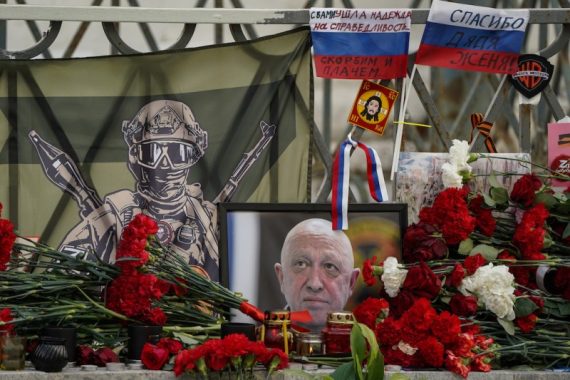Y
evgeny Prigozhin, the founding head of the private military company (PMC) Wagner Group and known as “Putin’s boss,” was killed in an air strike near Moscow on August 23. In addition to Prigozhin, Dimitry Utkin, Wagner’s second in command, and six others were killed in the accident. A former special forces officer, Utkin was considered one of the strategic brains behind Wagner’s operational activities in various conflict zones. Prigozhin’s death raised questions about the future of Wagner’s activities on the African continent. Mali, the Central African Republic (CAR), Sudan, Libya, Mozambique, Burkina Faso, and Niger are among the countries where Wagner has left its mark.
Wagner’s activities in Africa and the mutiny
Wagner’s presence in Africa serves as a lever for Russia, which is in economic, political, and military competition with Western countries. Wagner, which has no legal basis within Russia’s borders, provides security services based on agreements and in cooperation with authoritarian governments in African countries. In return for these services, Wagner receives various economic concessions. By taking control of precious metals such as gold, diamonds, and oil, the paramilitary group acts in line with Russia’s economic, security, and political interests. The PMC also opens up new markets for Russia at a time when international sanctions are being tightened.
Moscow, which has gained significant influence through the paramilitary group under plausible deniability, does not want to lose this power in the future. In this context, the first discussion about Wagner’s future in Africa came to the fore after the mutiny that began on June 23. However, the rebellion was ended by mutual agreement and three different alternatives were offered to the Wagner staff: demobilization, exile in Belarus, and integration into the Ministry of Defense. In addition, Foreign Minister Sergei Lavrov acknowledged the existence of Wagner and announced that the PMC would continue its “successful” activities in Africa. These developments sent positive signals to Wagner’s partners in Africa.
Prigozhin’s death and possible scenarios regarding Wagner’s future in Africa
The timing of the visit to Benghazi by Russian Deputy Defense Minister Yunus-Bek Yevkurov is very critical. Yevkurov’s visit took place two days before the accident that killed Prigozhin and his colleagues. Based on this, Yevkurov’s visit raised the scenario that Wagner’s military operations in Libya would be taken over by another private military company working with Russia under a new plan. Shortly before and immediately after Prigozhin’s death, many Wagner personnel were found to have defected to another Russian PMC, Redut. Redut operates under the control of the GRU, Russia’s foreign military intelligence agency, and the Ministry of Defense.
Another scenario is that the Kremlin is reconsidering its military involvement in Sudan, the Central African Republic, the Sahel countries (Mali, Burkina Faso, Niger), and Libya. Accordingly, Russia’s abandonment of its covert intervention approach and the shift of its military presence in Africa to a more official dimension can be interpreted as a card against authoritarian governments in Africa that depend on Wagner’s security services in the fight against violent extremism and terrorism.
In this scenario, the flexibility offered by Wagner to the countries concerned could be lost. Instead, there may be more bureaucracy and inertia. Prigozhin’s death some two months after the mutiny suggests that the Ministry of Defense and the intelligence services are trying to buy time to take over Wagner’s network and relationships in Africa during a transition period.
The third scenario is that Wagner continues its activities in new forms despite the loss of its leader. Wagner’s strong network in different parts of Africa, built in the space of ten years, highlights the pragmatic possibility of reshaping the relations that Prigozhin established with the current administrations in line with Russia’s foreign policy interests, rather than disbanding the group.
On the other hand, Wagner’s ability to operate where Moscow has no official or legal presence makes it an indispensable and highly valuable tool of the Kremlin’s foreign policy. However, as a non-state armed actor, Wagner has been associated with Prigozhin since its inception and, as a result, many analysts equate the death of Prigozhin with the end of Wagner.
Wagner after Prigozhin
Regardless of these scenarios, Prigozhin left behind a semi-independent criminal security agency in Africa. For the Kremlin, the economic and geopolitical benefits of Wagner are too critical to be completely abandoned. The coups in the Sahel over the past three years and the ousting of France from the region were part of a strategy in which Wagner plays a key role.
The relative weakening of Wagner, which is an important counterterrorism partner in unstable countries such as Mali, Burkina Faso, Sudan, and the Central African Republic, will create a fragile security environment for the armies of these countries and lead them to face difficulties in the fight against terrorism.
Recommended





